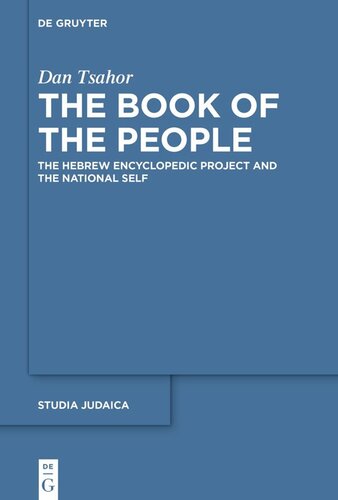

Most ebook files are in PDF format, so you can easily read them using various software such as Foxit Reader or directly on the Google Chrome browser.
Some ebook files are released by publishers in other formats such as .awz, .mobi, .epub, .fb2, etc. You may need to install specific software to read these formats on mobile/PC, such as Calibre.
Please read the tutorial at this link: https://ebookbell.com/faq
We offer FREE conversion to the popular formats you request; however, this may take some time. Therefore, right after payment, please email us, and we will try to provide the service as quickly as possible.
For some exceptional file formats or broken links (if any), please refrain from opening any disputes. Instead, email us first, and we will try to assist within a maximum of 6 hours.
EbookBell Team

5.0
70 reviewsHebrew encyclopedias have an intriguing history. The genre, which began as modest initiatives to disseminate general knowledge and strengthen literacy among Russian Jews, quickly became the most popular in modern Hebrew literature, with tens of thousands of subscribers to publications such as Encyclopaedia Hebraica and Encyclopaedia Biblica.
The makers of these vast bodies of knowledge hoped to demonstrate Hebrew’s mimetic power and the vitality of newly created Jewish research institutions. They also hoped that the encyclopedias would be an essential tool in shaping and reshaping Zionist national culture and nurturing an ideal national persona. Thus, the printed pages of the encyclopedias give us unique access to what Zionists were saying about themselves, how they perceived their neighbors, and what they were hoping for the future, thereby going beyond the official Zionists documents, newspaper articles, and the writings of intellectuals that have been used extensively by historians to narrate national consciousness.
By bringing to the fore these unique texts, The Book of the People presents common perceptions of memory and collective identity that often do not fit with the narratives offered by historians of Zionism. In doing so, the book also exposes ethical codes that regulated the production of Zionist knowledge and endowed the encyclopedias with a rare status as a bona fide source for truths by people from diverse political and social backgrounds.